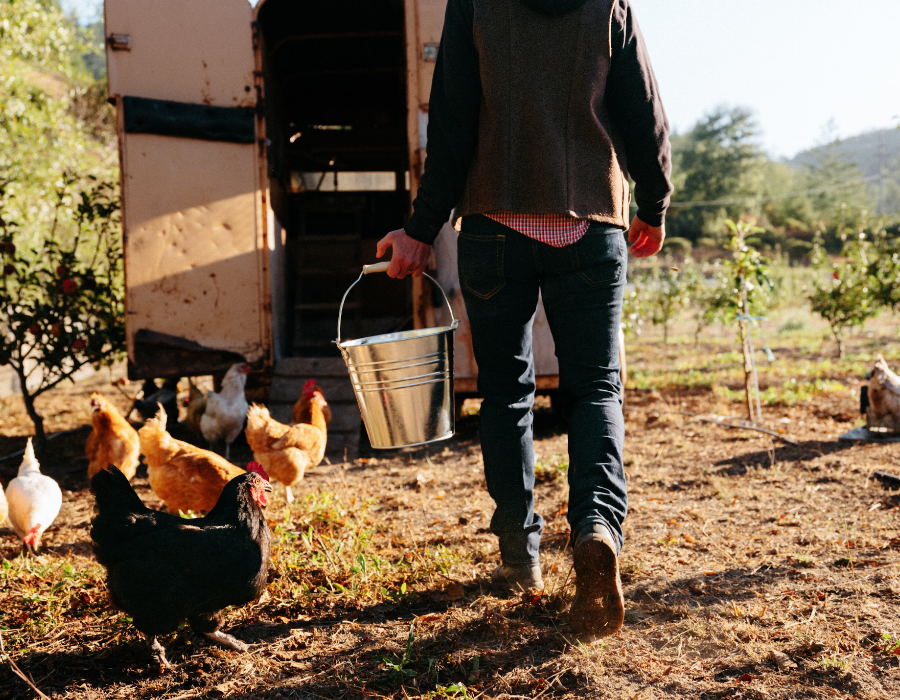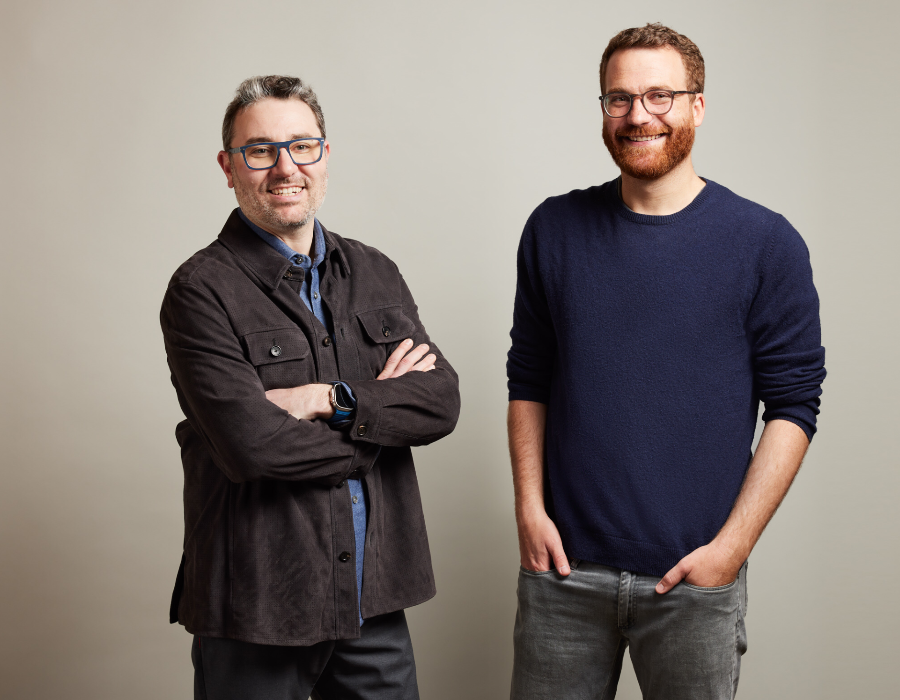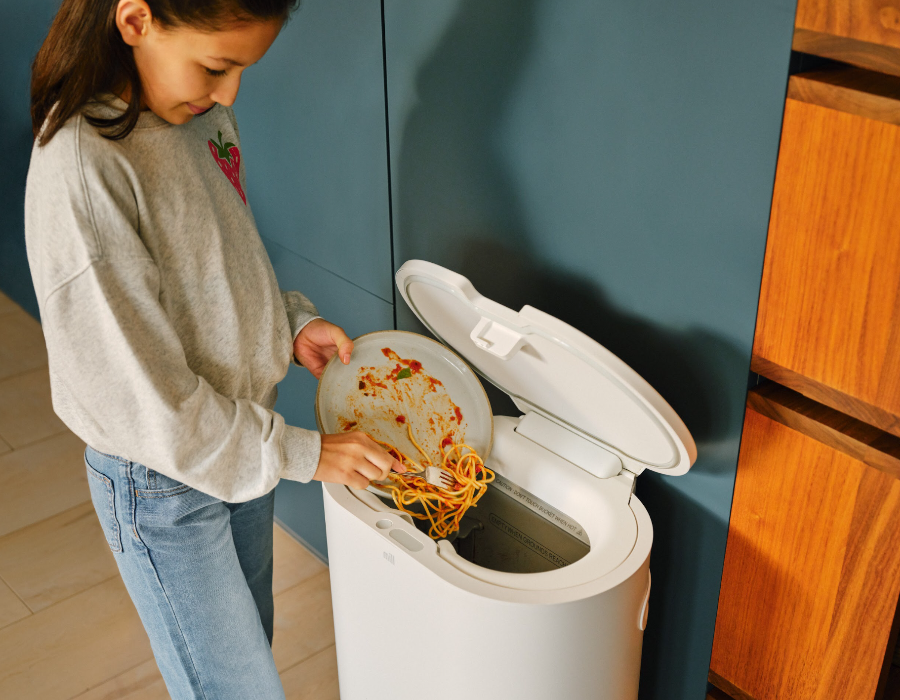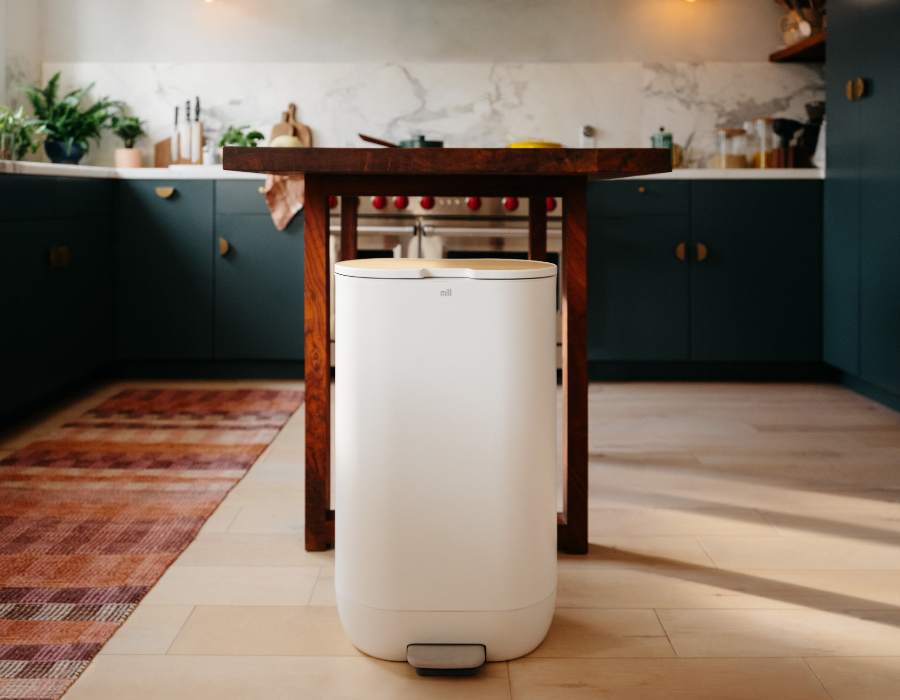Trash your old way of thinking about green waste. In fact, can it. A local partnership of technology and farming is creating the next revolution in food recycling. Mill Industries Inc., an in-home food-recycling company based in San Bruno, Calif., and Recycled City, J.D. Hill’s pioneering farm in South Phoenix, have developed a food waste-reduction service for Phoenix residents.
Two early employees at Nest, Harry Tannenbaum and Matt Rogers, and a team of Apple and Google engineers, have built Mill, an odor-free, easy-to-use, and whisper-quiet recycling bin that prevents food waste at your home or in your office while supporting a strong local food system.
 The bin takes all the food you can’t eat at home, and instead of wasting it or throwing it in the trash, Mill dries and grinds it into material that can be used as a resource on farms or in gardens. Because the food grounds are dehydrated, they get really small (food is 80% water) — so the bin takes weeks to fill up.
The bin takes all the food you can’t eat at home, and instead of wasting it or throwing it in the trash, Mill dries and grinds it into material that can be used as a resource on farms or in gardens. Because the food grounds are dehydrated, they get really small (food is 80% water) — so the bin takes weeks to fill up.
Once full, the R.City team picks up the grounds and takes them back to the farm where the grounds are used as part of an existing composting process to help grow marketable vegetables like squash, okra, kale, eggplant, cucumbers, carrots, and microgreens. Customers can receive these as part of an optional monthly Farm Box delivery to enjoy food facilitated by their recycling efforts.
“Leftover food isn’t waste,” says Tannenbaum, whose work with Rogers to create the Nest Learning Thermostat and other products inspired them to think innovatively about changing our perception of food waste and to make it easy for people to do the right thing. Their eco-mantra: Don’t toss your garbage into the garbage.
“When we started this business, I didn’t realize that food waste is the largest single component of our landfills,” he explains. “And I wouldn’t have thought it was households that were the largest producers of food waste. I thought grocery stores or restaurants or something like that.”
 Today, Americans waste about 40% of the food they purchase without moving it forward to food banks, community pantries, and other facilities in need, he says. He adds that Arizona annually sends about 1.7 million tons of food to its landfills. That’s about 43 million tons each year nationwide.
Today, Americans waste about 40% of the food they purchase without moving it forward to food banks, community pantries, and other facilities in need, he says. He adds that Arizona annually sends about 1.7 million tons of food to its landfills. That’s about 43 million tons each year nationwide.
A recent EPA report estimates that 58% of landfill methane emissions come from wasted food. When food rots in landfills, it produces methane gas that warms the planet faster than carbon dioxide.
“It makes no sense to be burning or burying our leftover food when it could be used as part of a composting process to grow more food on farms like J.D.’s,” he says.
Tannenbaum asks you to see the problem this way: Today, the average amount of food we waste is the same as buying five bags of groceries and leaving two in the parking lot. On average, that adds up to two pounds of food a day, 60 pounds monthly, and about 600 pounds annually feeding the ravenous landfill. That totals about $1,900 each year per family wasted on unconsumed food, he says.
J.D. Hill, founder and president of R. City, the 16.5-acre farm which is partnering with Mill, says, “When I set out to build R.City over ten years ago, my goal was to connect households with small local farms through a food waste collection service, and this new partnership with Mill makes it even easier for more people to get involved with almost no effort.”
Hill shares that he quickly responded to Mill’s proposal to join forces, understanding that he and his 20 employees would be closing the loop on the home/business-to-farm relationship. He recognized immediately that the service would have a positive environmental, economic, and social impact. Everyone would benefit from the opportunity.
Tannenbaum first thought about the challenge of food waste during COVID-19. Locked down in California, he confronted how much we waste.
“I thought about how much we waste and started talking to researchers, scientists, and soil experts about the challenges with our current waste system, in which food is thrown out into landfills with ripped umbrellas, used car batteries, and squeezed-out toothpaste tubes,” he recalls.
“Reducing food waste is the number-one thing we can do in the next 30 years to have a positive impact on our planet, and the good news, it’s easy,” he adds. “We just need to stop throwing food in the trash –– it’s a behavior change issue.”
How Mill Works: Greens Become Green, ‘Ick’ is Slick
Offering a free 30-day trial and pricing the pick-up service at just $35 per month thereafter, Mill delivers the convenient easy-to-use bin to your home, office, or school. Once the bin is full, R.City picks up the residual grounds. In addition, customers receive unlimited odor filter refills, support, and free finished compost as many as four times a year.
 The contemporarily designed bin is easy to use, with an aluminum bucket to collect the food grounds and a ceramic interior coating that helps the bin dehydrate food overnight.
The contemporarily designed bin is easy to use, with an aluminum bucket to collect the food grounds and a ceramic interior coating that helps the bin dehydrate food overnight.
“There is a foot pedal that opens it just like a trash can, it smells good, and the bin takes weeks to fill up,” says Hill, who is using it in his kitchen. “This means fewer pickups, a better kitchen experience, and an easy, practical way to prevent food waste while giving back to our local community.”
Expanding the circular business model will create opportunities for everyone.
 Tannenbaum explains, “In less than a year, we’ve already helped people save one million pounds of food by turning kitchen scraps into food for farms and gardens,” he says. “We are fulfilling the promise of what technology and innovation can and should do for society, making people’s lives easier while also making a positive impact on the planet.”
Tannenbaum explains, “In less than a year, we’ve already helped people save one million pounds of food by turning kitchen scraps into food for farms and gardens,” he says. “We are fulfilling the promise of what technology and innovation can and should do for society, making people’s lives easier while also making a positive impact on the planet.”
For more information, visit www.mill.com.







